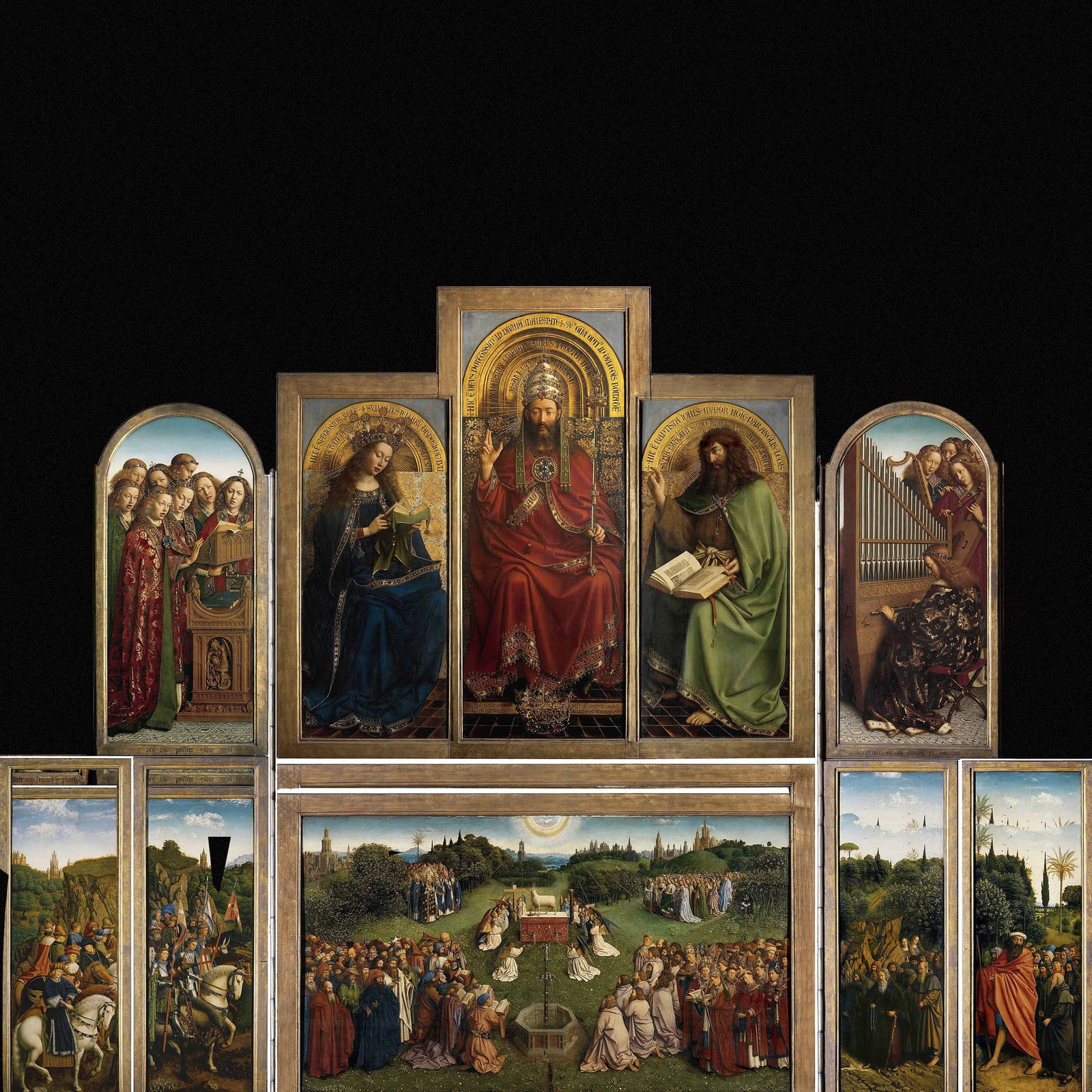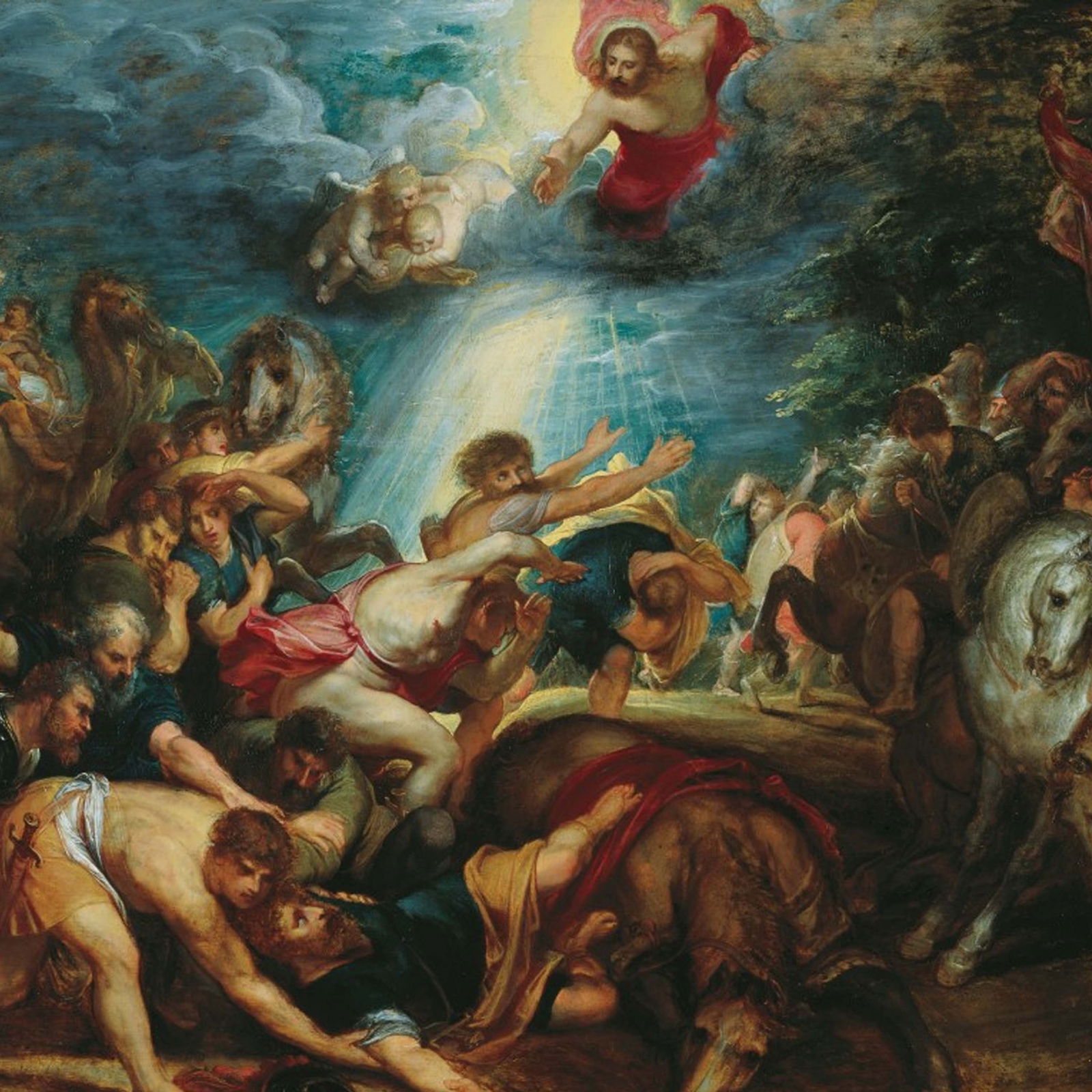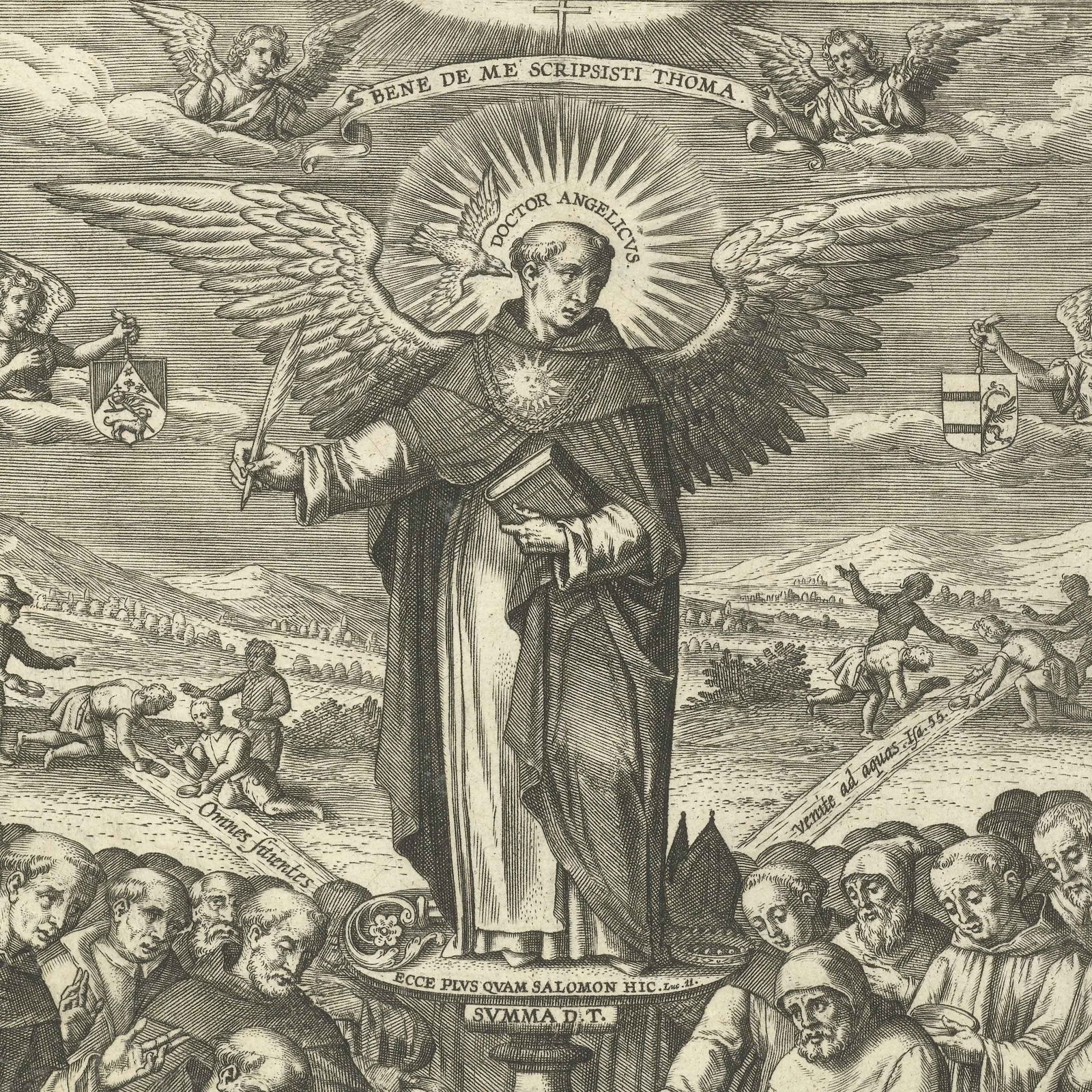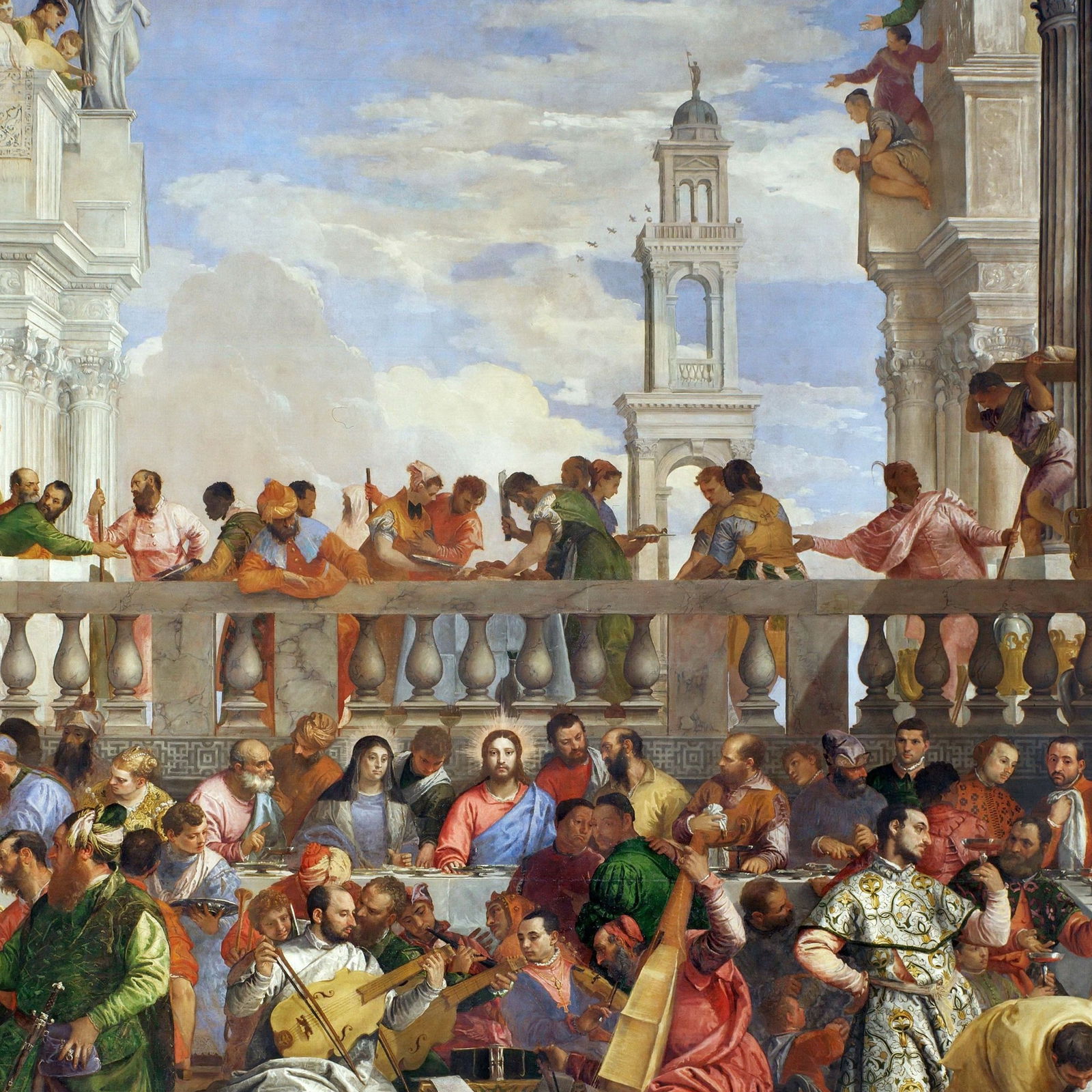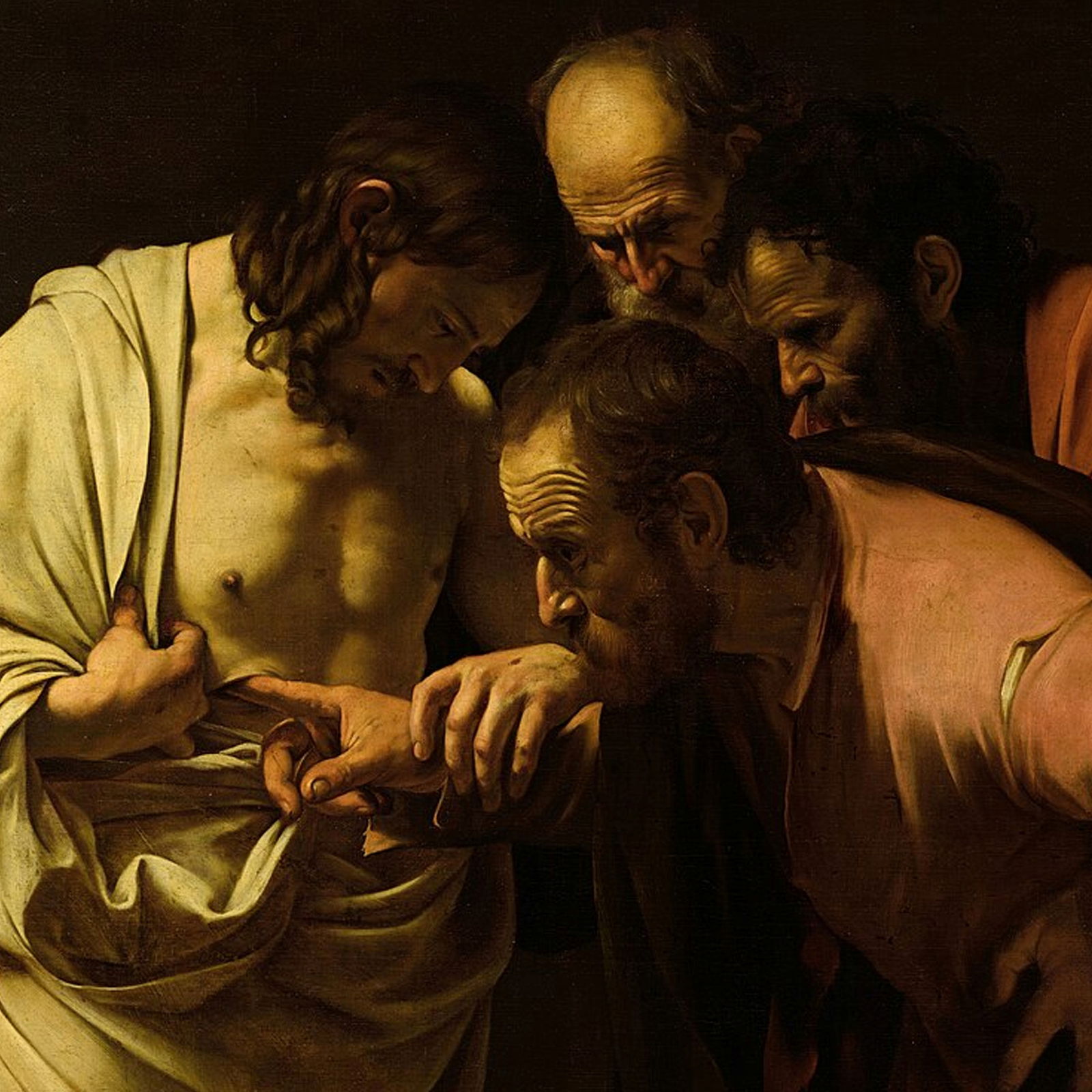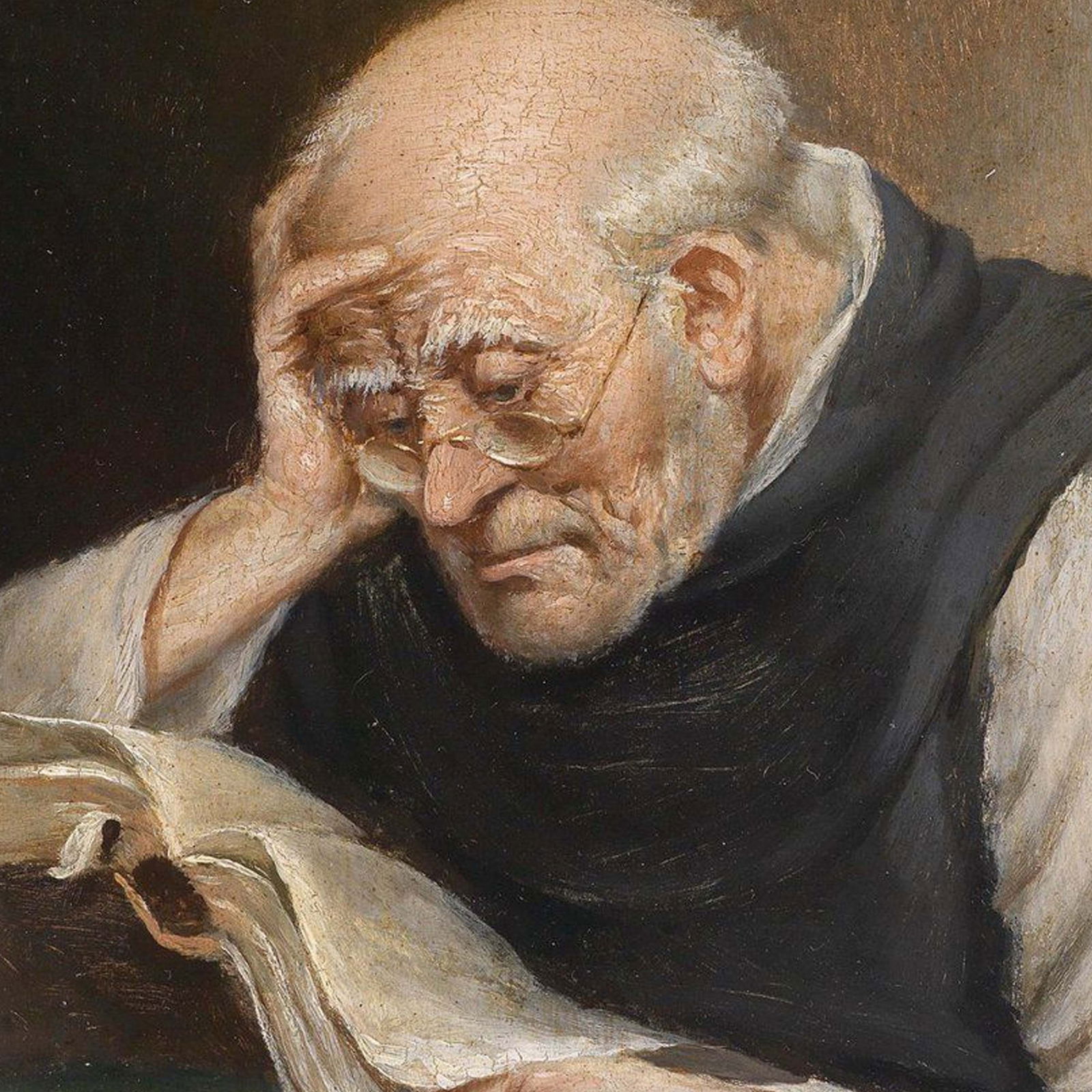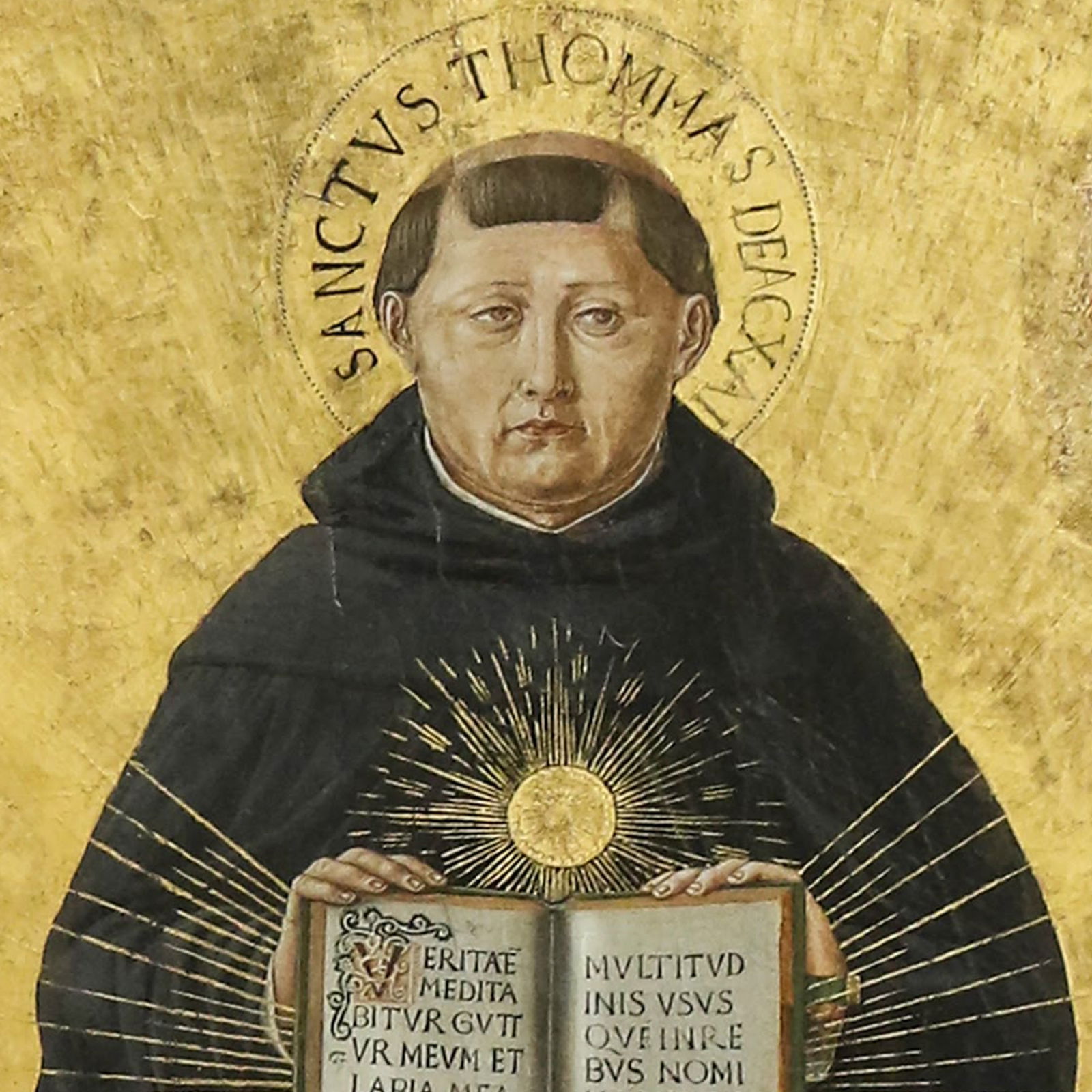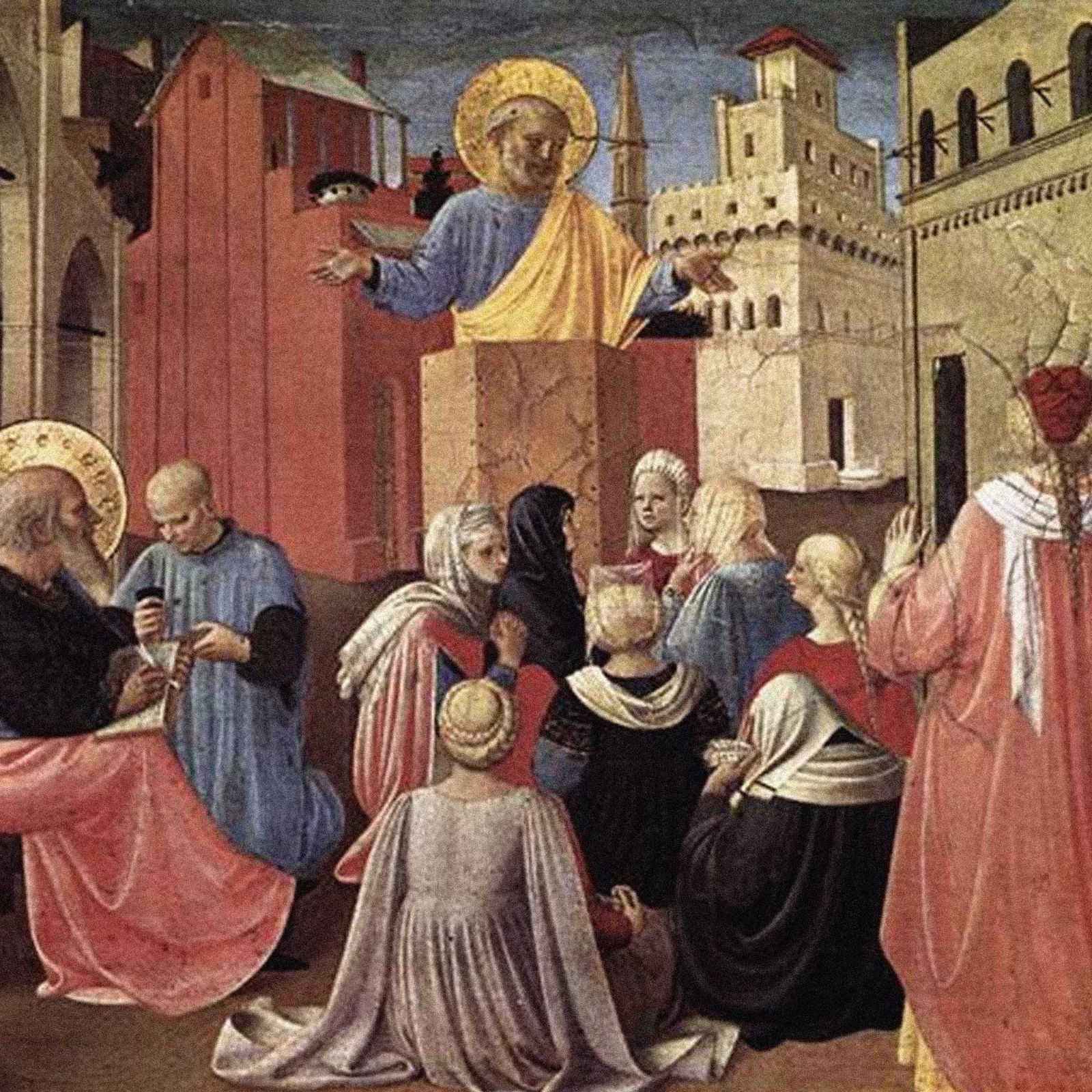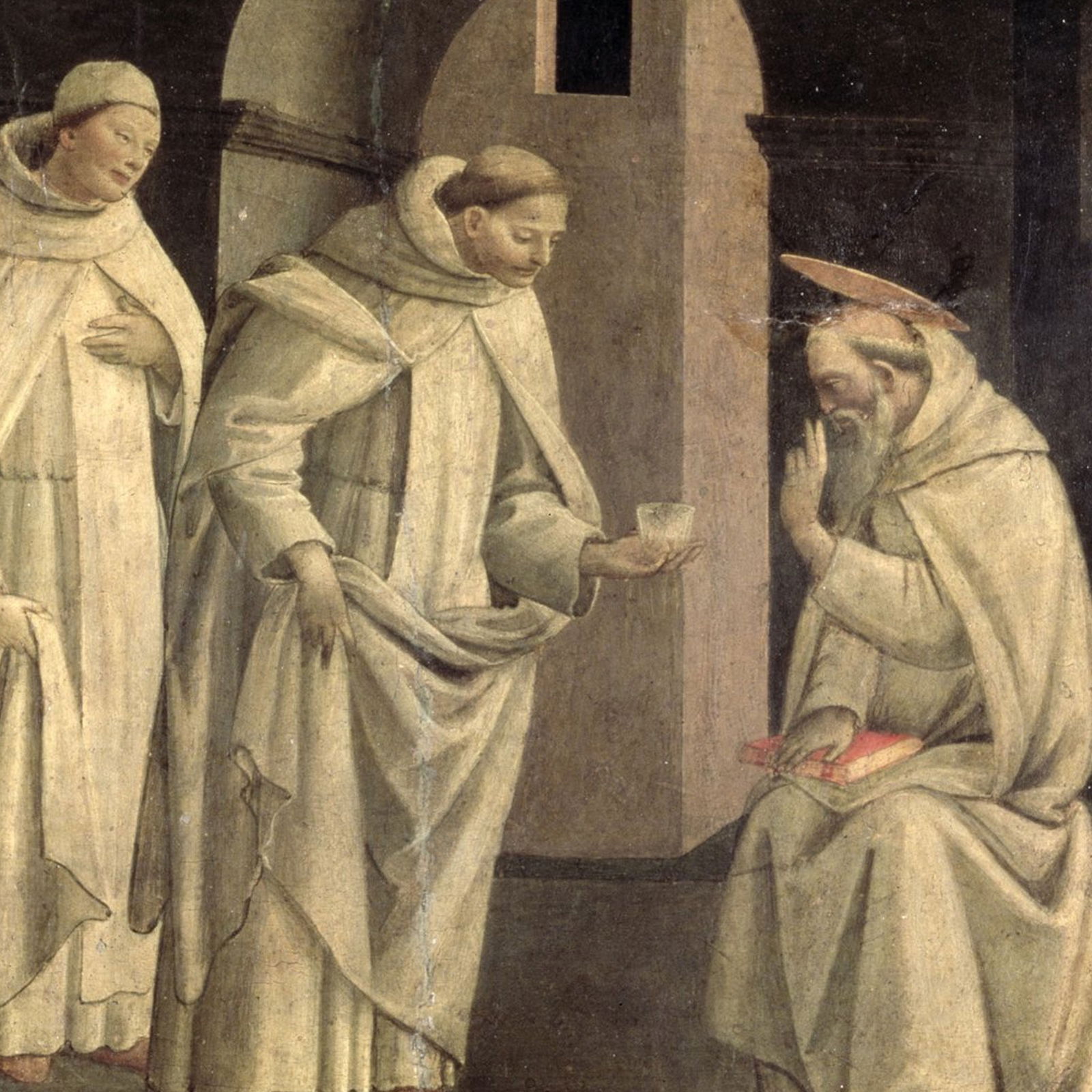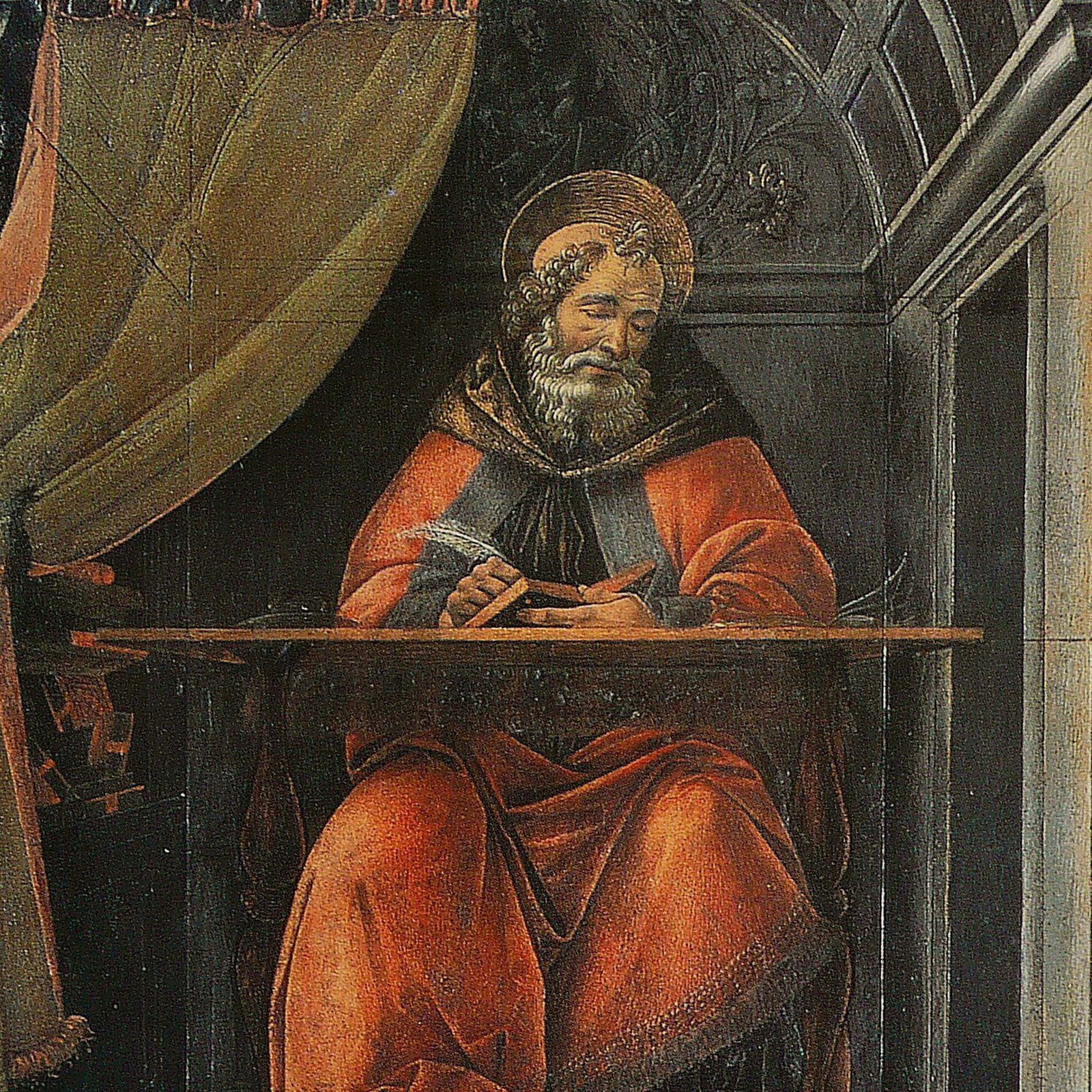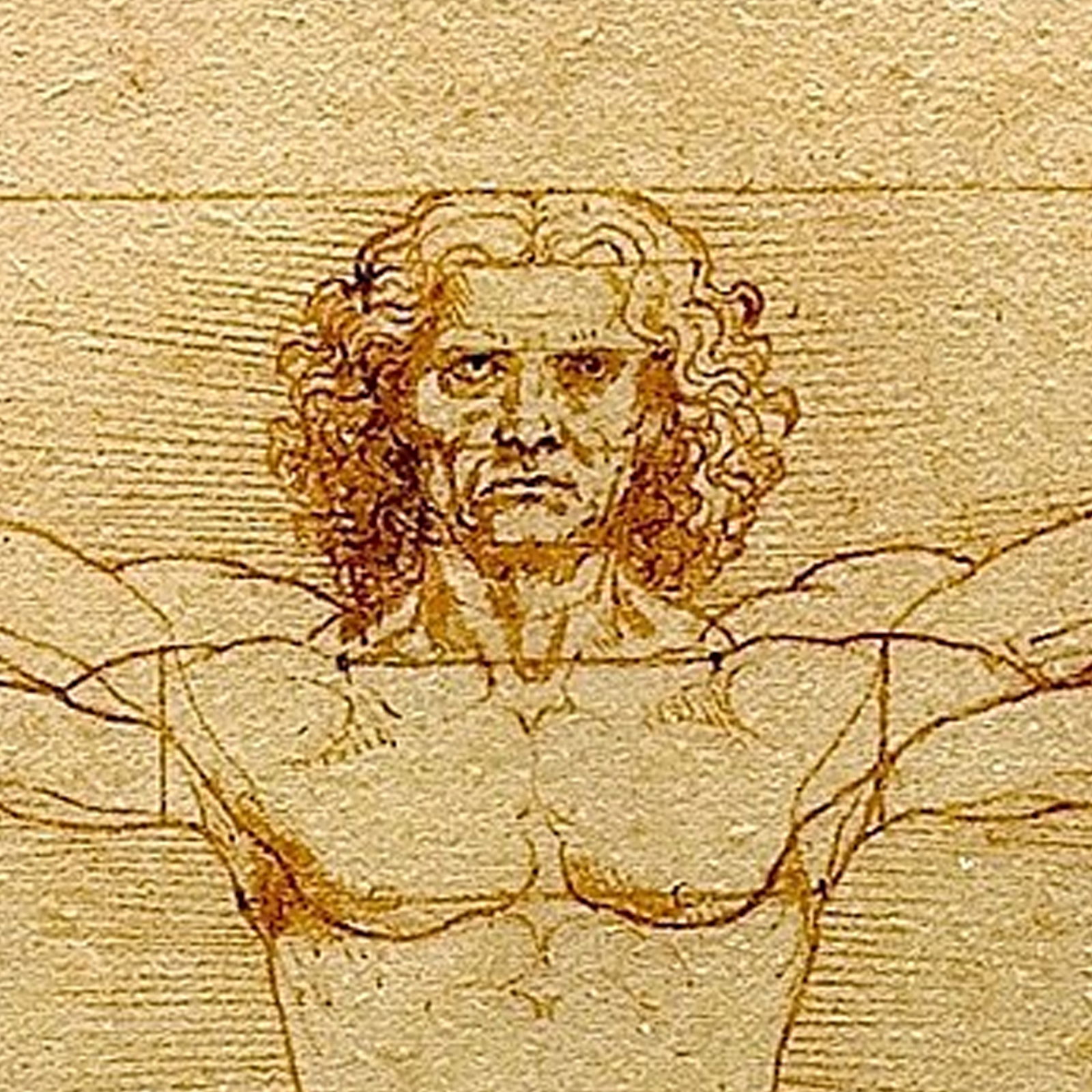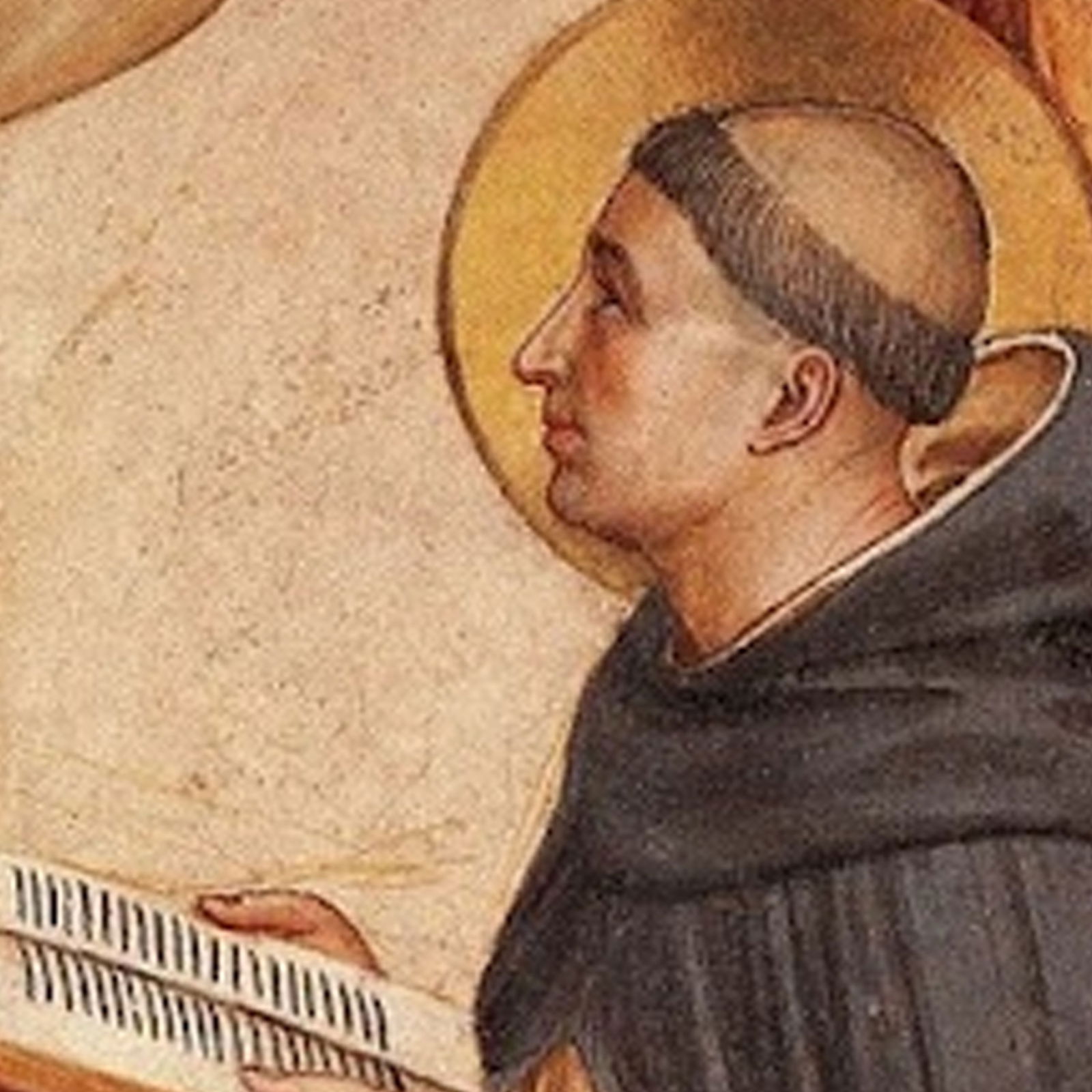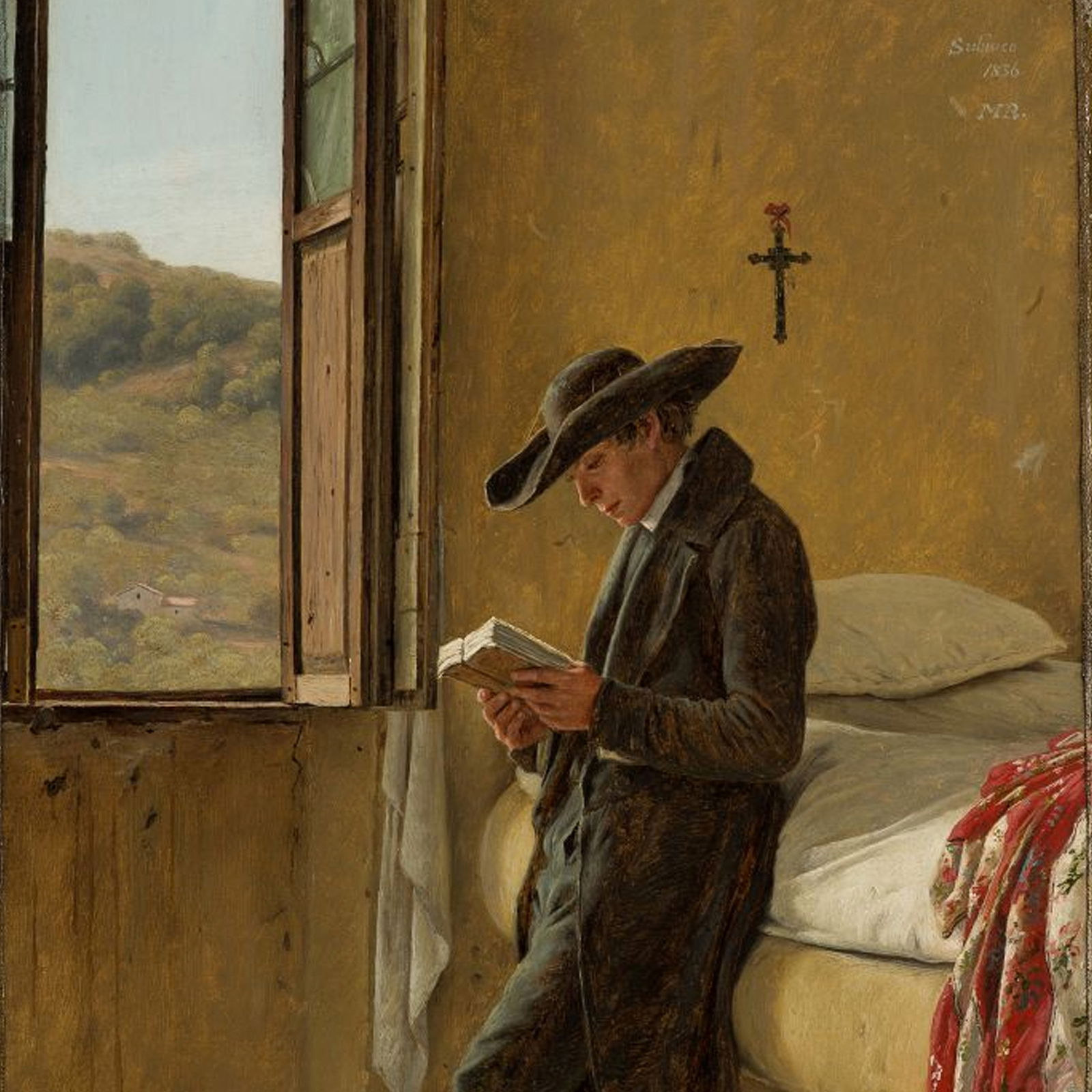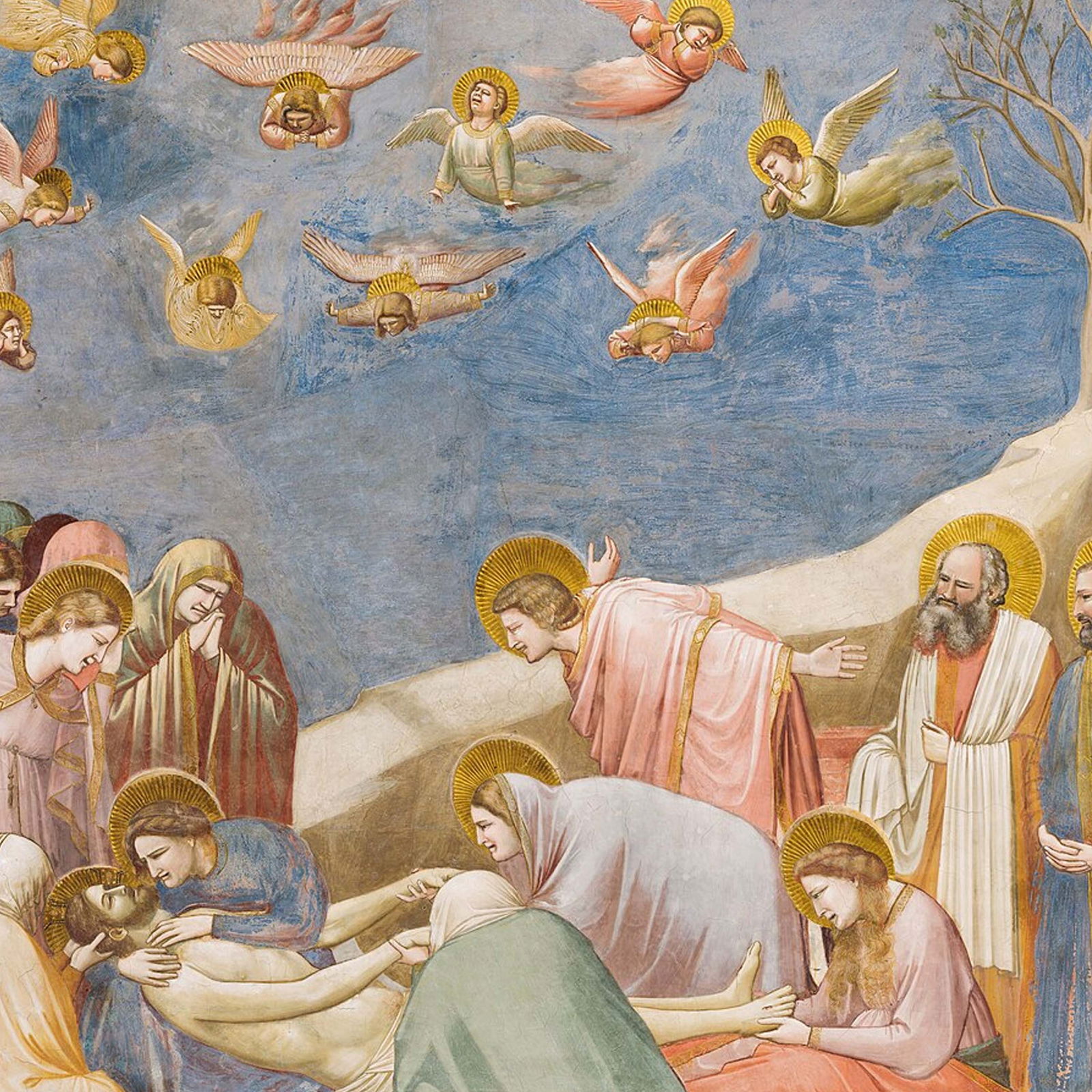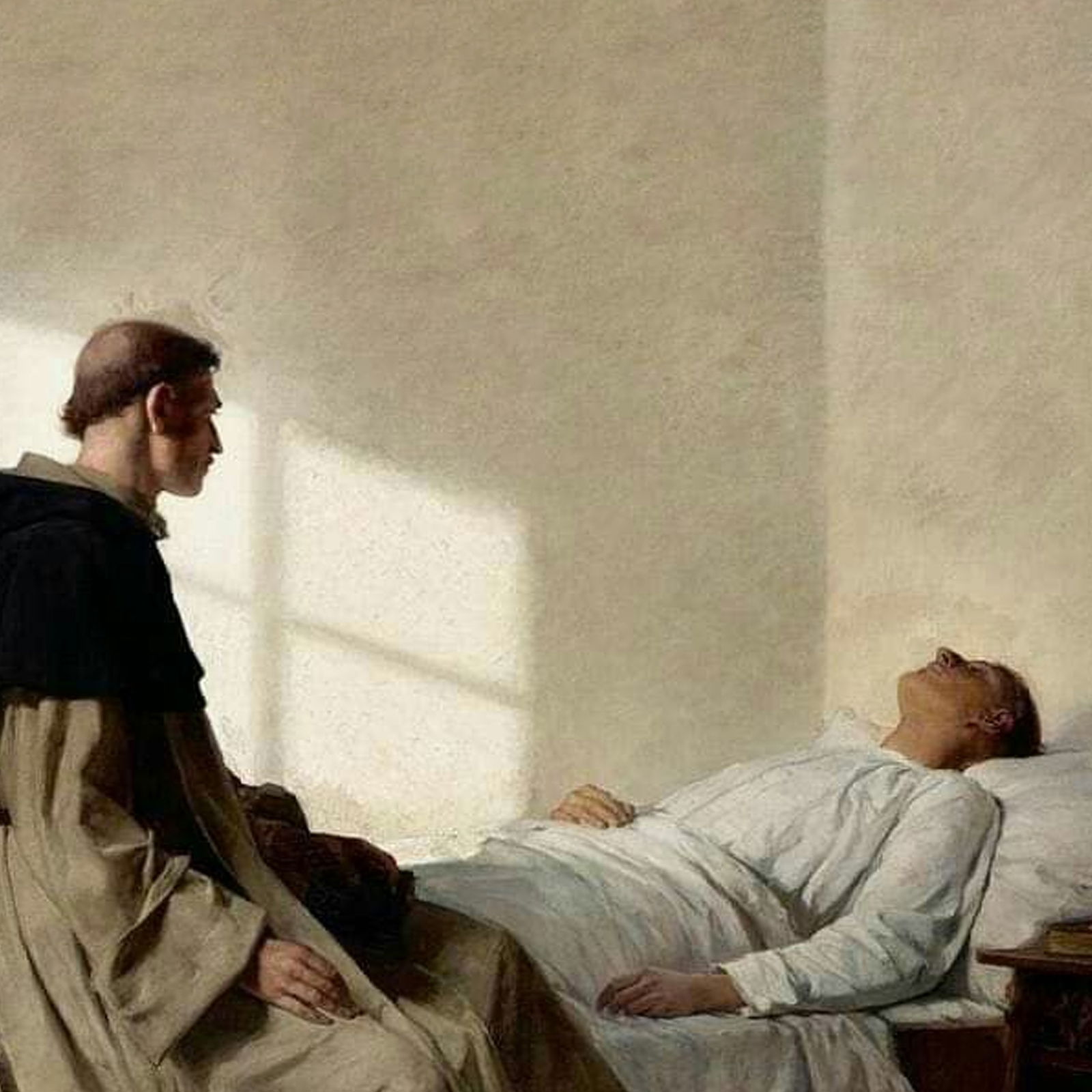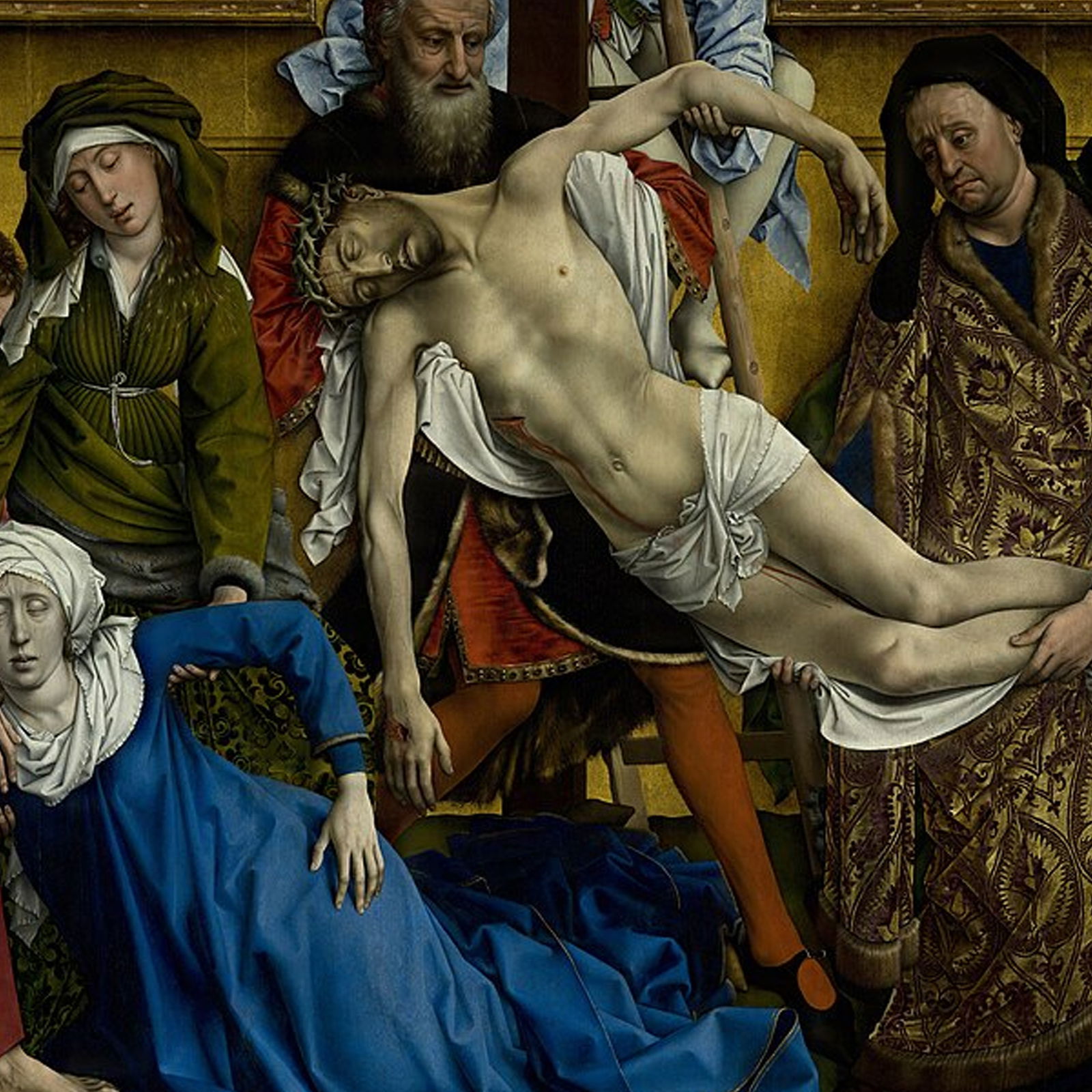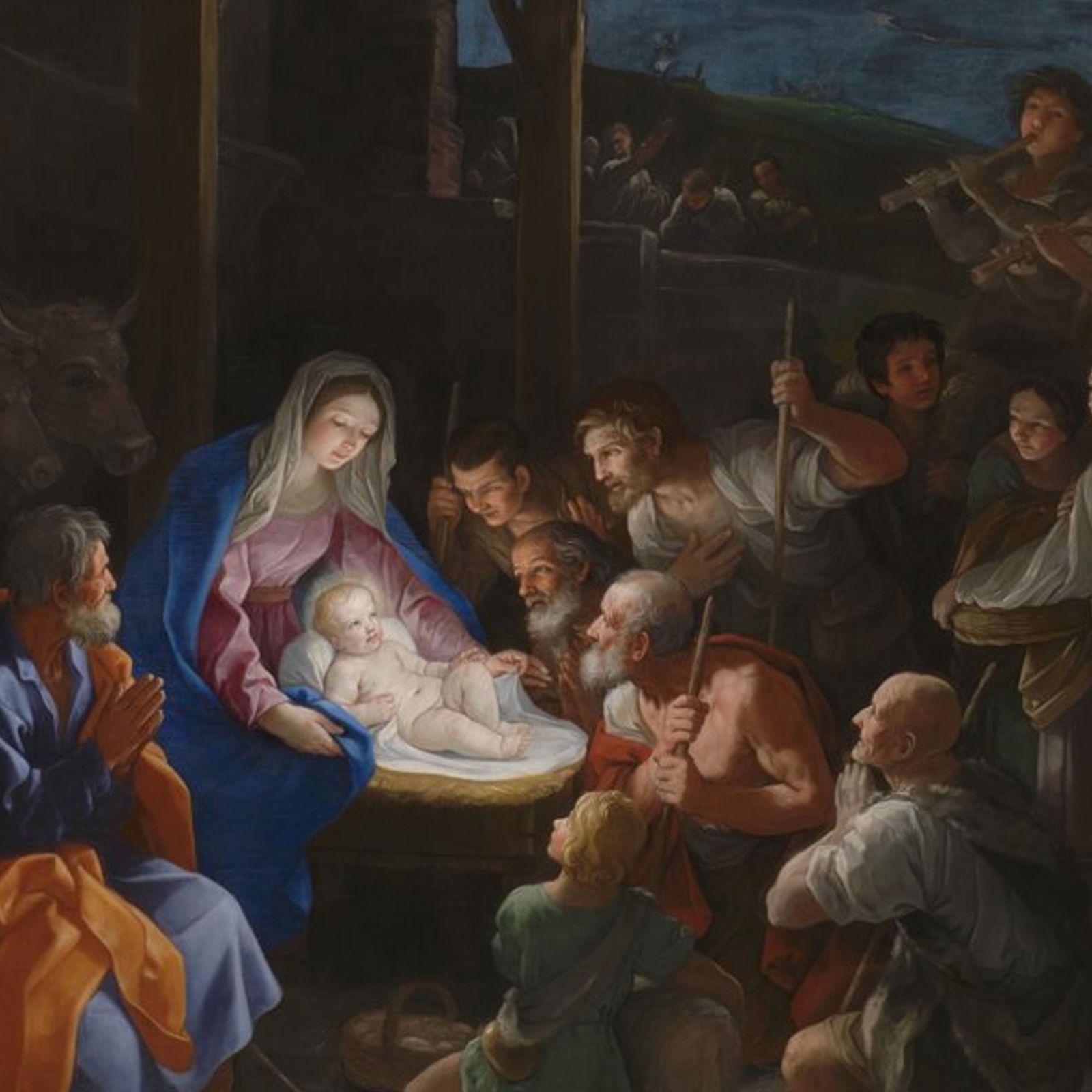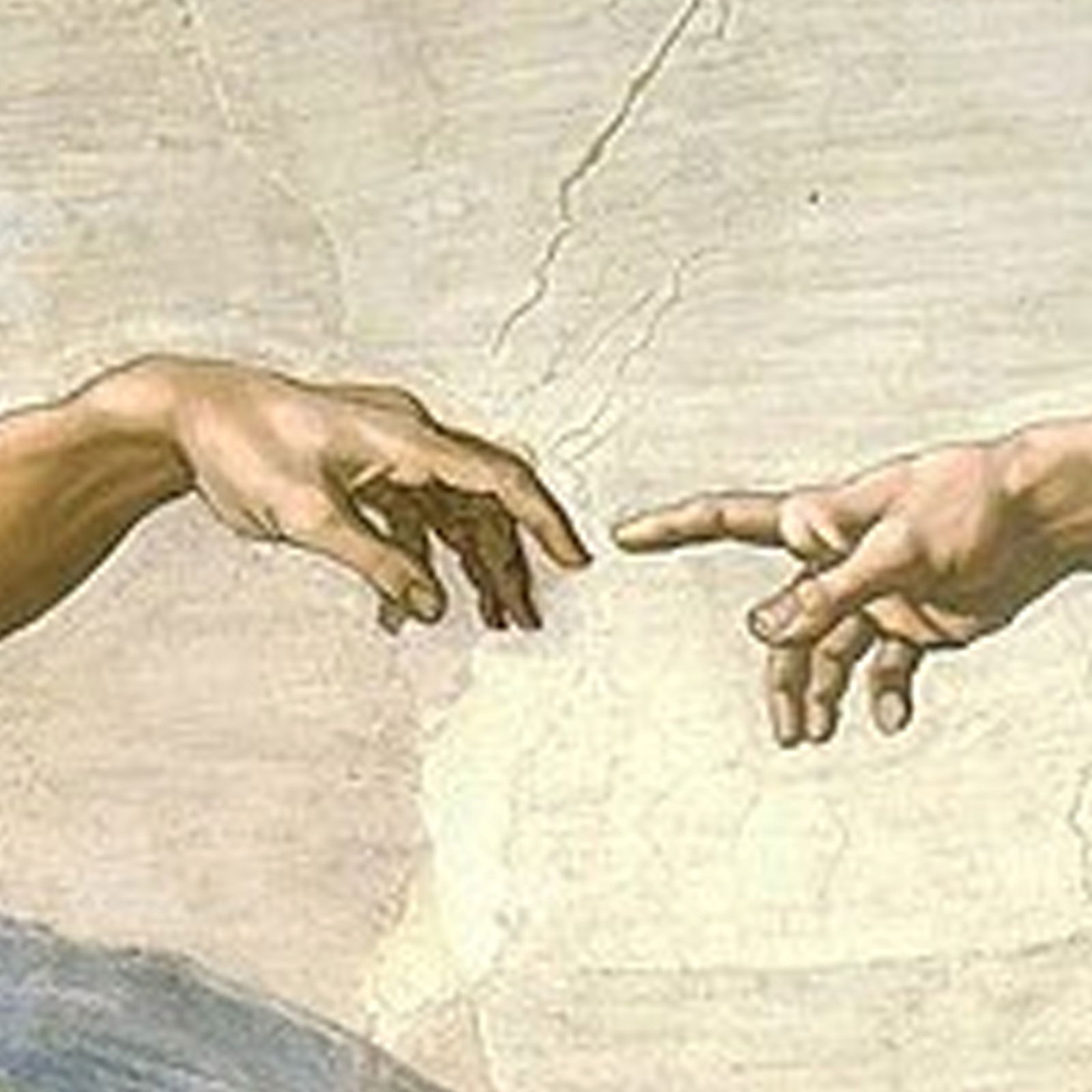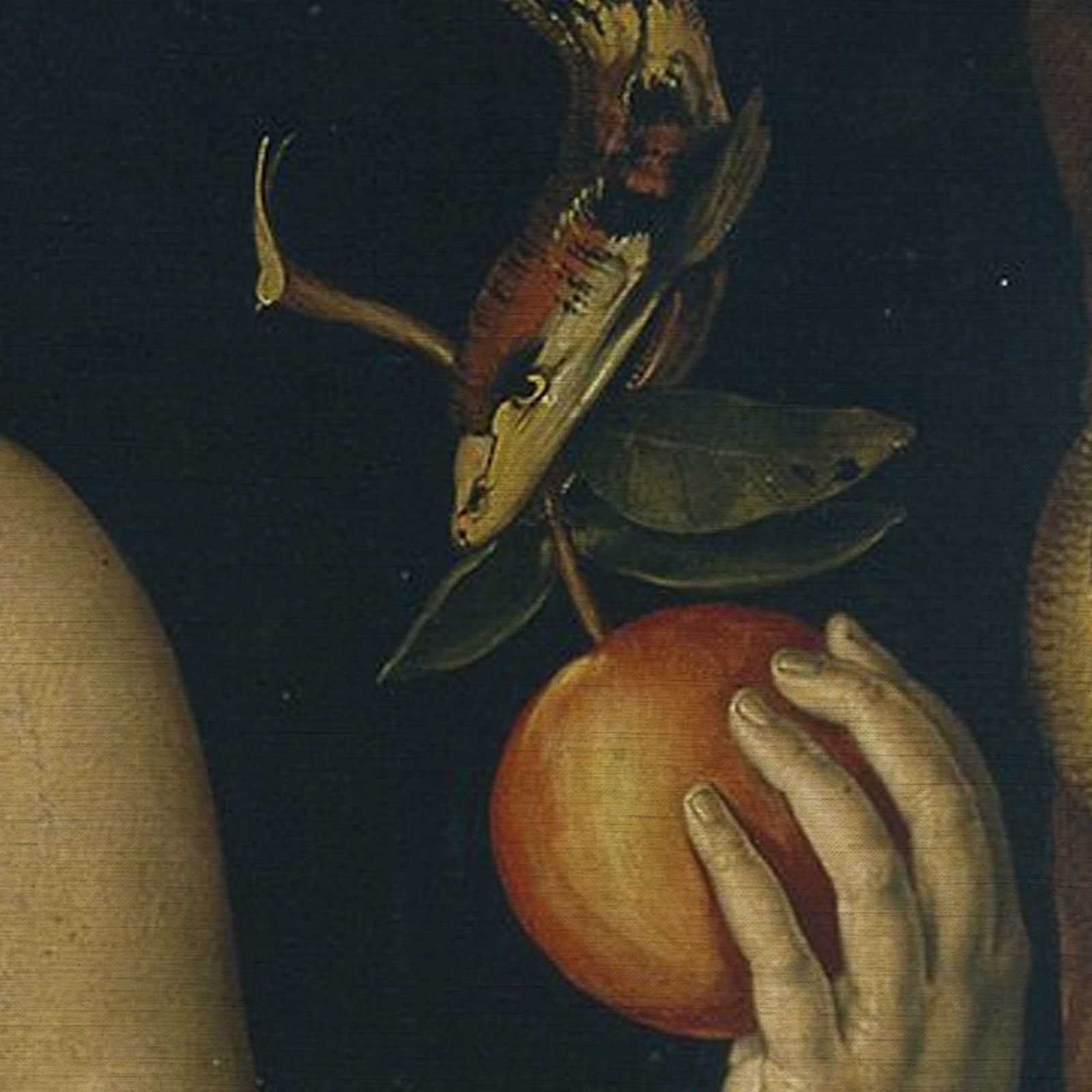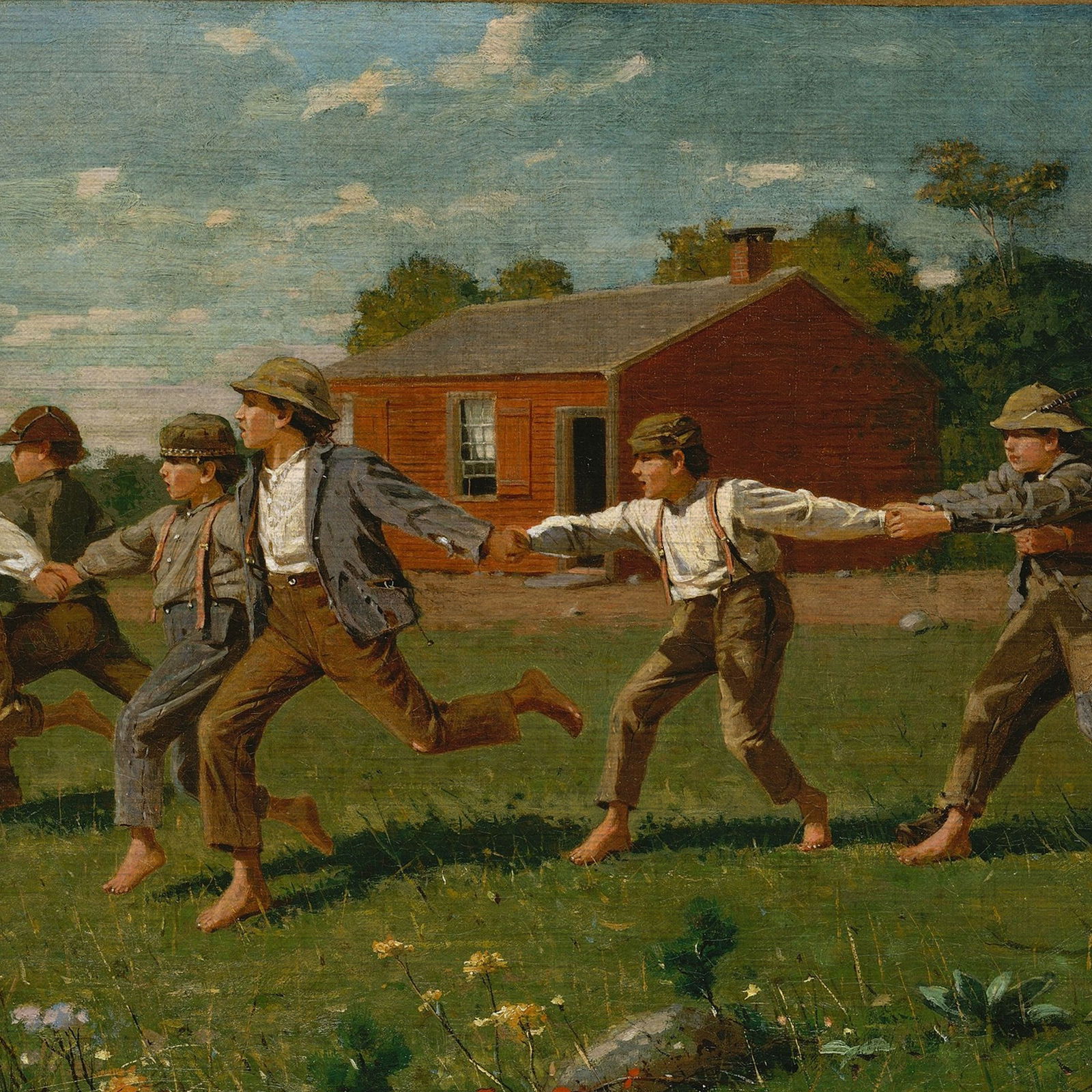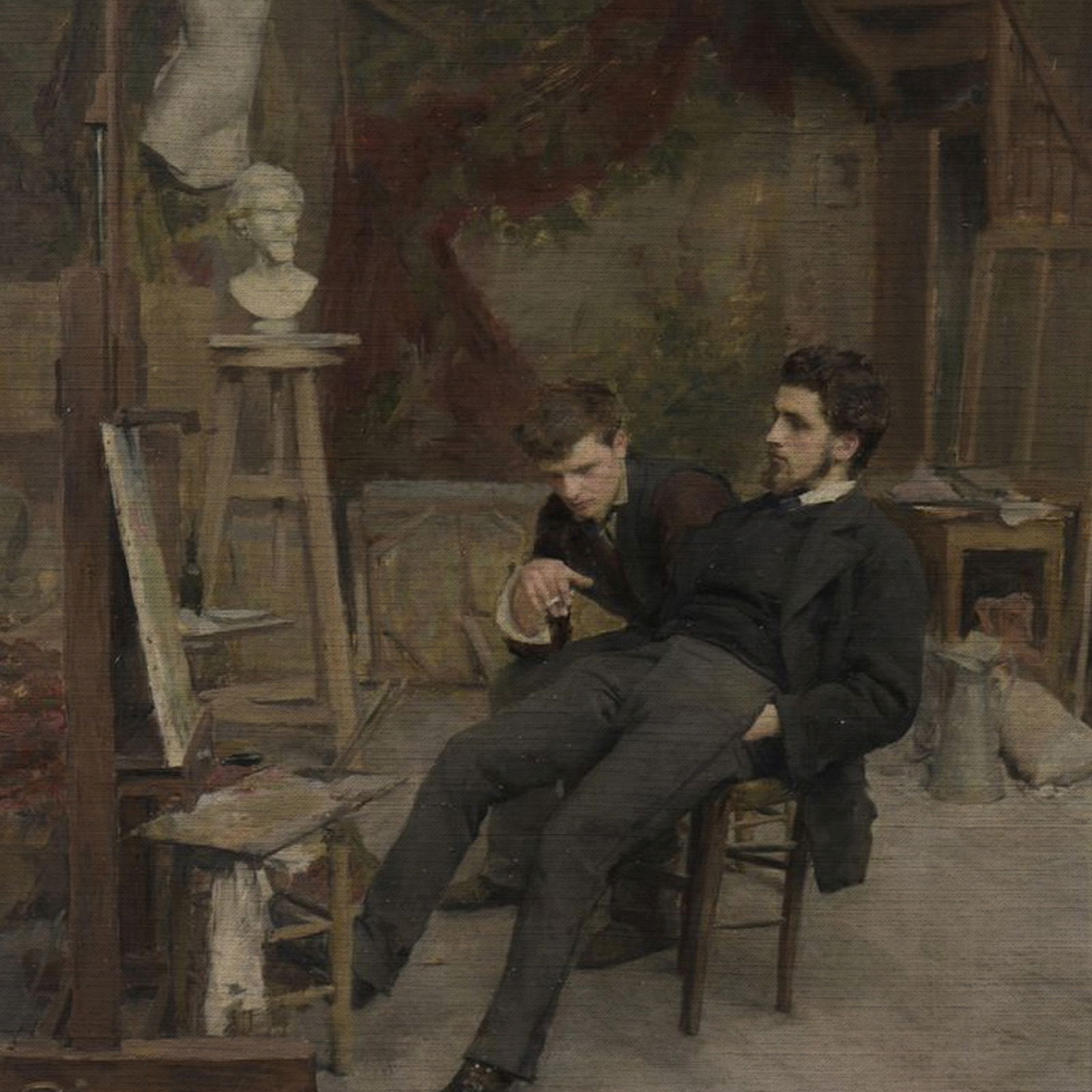Campus Lectures Episodes
The Scopes Trial & the Myth of Warfare between Science & Religion – P…
Prof. Kenneth Kemp reexamines the Scopes “Monkey Trial” to show that it has been mythologized into evidence of a supposed war between science and religion, arguing instead that the real conflicts concerned constitutional law, educational policy, and competing theological and philosophical visions w…
Creation vs. Creationism – Fr. Dominic Legge, O.P.
Fr. Dominic Legge distinguishes the classical Catholic doctrine of creation from modern creationism by showing how a robust Thomistic account of God as the transcendent cause of all being avoids conflict with evolutionary science while deepening our understanding of what it means for the world to b…
What Contemporary Culture Needs to Learn from Thomas Aquinas – Prof. …
Prof. Michael Dauphinais explains what contemporary culture needs to learn from Thomas Aquinas, arguing for a metaphysics of communion in which God, family, Church, and society are not locked in competition but share common goods that make each more fully alive.
Flirting with Happiness: Aquinas on the Good Life – Fr. Alan O'Sulliv…
Fr. Alan O’Sullivan unpacks Aquinas on the good life, explaining why wealth, power, fame, and pleasure cannot be our ultimate happiness and how true beatitude is found in virtuous activity ordered to God.
Does God Exist? How Do I Know? The Five Ways of Aquinas – Fr. Irenaeu…
Fr. Irenaeus Dunlevy introduces Aquinas’ Five Ways, showing how arguments from motion, causality, contingency, gradation, and teleology lead from everyday experience to the rational conclusion that God exists as first mover, first cause, necessary being, supreme perfection, and intelligent governor.
John Paul II on the Value of Human Life and Euthanasia – Prof. Christ…
Prof. Christopher Tollefsen explains John Paul II on euthanasia, showing how the Pope’s vision of human life as a sacred gift, bearing God’s image and destined for eternal friendship with Him, rules out any claim to a right to kill oneself or others.
St. Thomas Aquinas on the Beatitudes – Fr. Anton ten Klooster
Fr. Anton ten Klooster explores St. Thomas Aquinas on the Beatitudes, showing how they map an ordered, grace‑filled path of virtues and gifts that lead from imperfect happiness in this life to perfect union with God in the next.
Engaging Politics as a Catholic – Dr. Jan Bentz
Dr. Jan Bentz explores what it means to engage politics as a Catholic, calling believers to critical thinking rooted in truth, a both‑and logic that resists polarization, and a discerning love of nation that remains ordered to the common good and eternal beatitude.
Understanding Anscombe’s Absolutism – Prof. Marshall Bierson
Prof. Marshall Bierson unpacks Elizabeth Anscombe’s moral absolutism, arguing that questions like “Why is it worse to kill one innocent person than to let five die?” rest on a grammatical confusion that obscures the absolute wrongness of intentionally killing the innocent.
Augustine and Aquinas Against Skepticism – Prof. Chad Pecknold
Prof. Chad Pecknold explains how Augustine and Aquinas argue against skepticism, defending metaphysical realism and the mind’s capacity to know truth as essential for genuine morality and for leading people to Christ, who is Truth itself.
The Issue of Free Will: Are We the Authors of Our Actions? – Prof. St…
Prof. Steven Jensen explores the issue of free will and moral responsibility, arguing that we are genuine authors of our actions only if our choices are self-determined and not merely the inevitable result of heredity, environment, or internal states shaped by outside forces.
Rewiring the Brain – Dr. William Hurlbut
Dr. William Hurlbut examines how natural neuroplasticity, education, lifestyle, and new neurotechnologies are “rewiring the brain,” highlighting both their therapeutic promise and their dangers in an age of addictive digital culture, standardized schooling, and powerful biotechnological interventio…
If ChatGPT Exists, Why Study? – Fr. Chris Gault, O.P.
Fr. Chris Gault explores whether AI like ChatGPT should change how or why we study, showing that while machines can accelerate information processing, only human study forms our minds, virtues, and relationship to truth in a way that leads to real fulfillment.
Can a Machine Understand?: ChatGPT, Knowledge, and the Nature of Unde…
Prof. Tomás Bogardus asks whether a machine can truly understand by unpacking how large language models like ChatGPT function and arguing that genuine knowledge requires rational insight and responsibility to truth that go beyond statistical text prediction.
Does God Care About Suffering? – Dr. Christopher Mooney
Dr. Christopher Mooney asks "whether God really cares about our suffering" and uses biblical narratives, the significance of Christ’s tears, and philosophical responses to death in order to answer in the affirmative, ultimately showing that God can form a greater good from evil without making the e…
Is Suffering Good? – Sr. Elinor Gardner, O.P.
Sr. Elinor Gardner asks whether suffering can be called “good” by engaging Stoic thinkers like Seneca, modern echoes in Nietzsche, and biblical wisdom to show how God can use painful trials to heal and deepen the soul without glorifying evil itself.
The God of Love and the Reality of Evil and Suffering – Prof. Chris B…
Prof. Chris Baglow explores how the God of love can allow evil and suffering by showing that a world created for freedom and love—not as a deterministic machine—necessarily entails the risk of physical and moral evils, yet opens a deeper path of redemptive goodness.
Christ Fully Reveals Man to Himself: What Christ's Humanity Says abou…
Prof. Paul Gondreau explores how Christ’s concrete, fully human life uniquely “fully reveals man to himself,” showing that every human person and all of history are teleologically ordered to him as the final Adam and measure of authentic humanity.
Creation as Relation: An Existential Consideration – Dr. Robert McNam…
Dr. Robert McNamara explores how creation is not a distant event but our very act of existing here and now, so that each person’s being is itself a continuous relation of absolute dependence on God that can be freely understood, accepted, and joyfully affirmed.
Do We Make Morality, or Discover It? An Examination of the Basis of N…
Dr. Erik Dempsey explores whether we make morality or discover it by unpacking Aquinas’s three natural inclinations and arguing that they ground objective, inescapable moral obligations rather than mere social conventions.
Seeking Friendship in the Virtual Age – Prof. John Cuddeback
Prof. John Cuddeback reflects on why many students feel relationally unsatisfied in a hyper-connected world and shows how reclaiming embodied presence, intentional discernment of a few trustworthy friends, and technology-limited, silence-friendly communal spaces can restore the depth, vulnerability…
Let the Best One Win: Reflections of Friendship and Competition – Pr…
Prof. Michael Krom explores how athletic rivalry, when rooted in justice and love of the good, can deepen genuine friendship, build virtue, and lead toward a contemplative vision of life.
Friendship and the Digital Age: A Thomistic Reflection on Human Conne…
Prof. Joshua Hochschild argues that digital culture reshapes friendship and attention through Curiositas and acedia, offering a path of renewal by cultivating virtue, mindful leisure, and rooted communal belonging.
Why Get Married? The Catholic View of the Meaning and Purpose of Marr…
Prof. Michael Dauphinais explains marriage as a lifelong covenant of self-giving love between a man and a woman that images Christ’s union with the Church, ordered to the spouses’ sanctification and the procreation and education of children .
